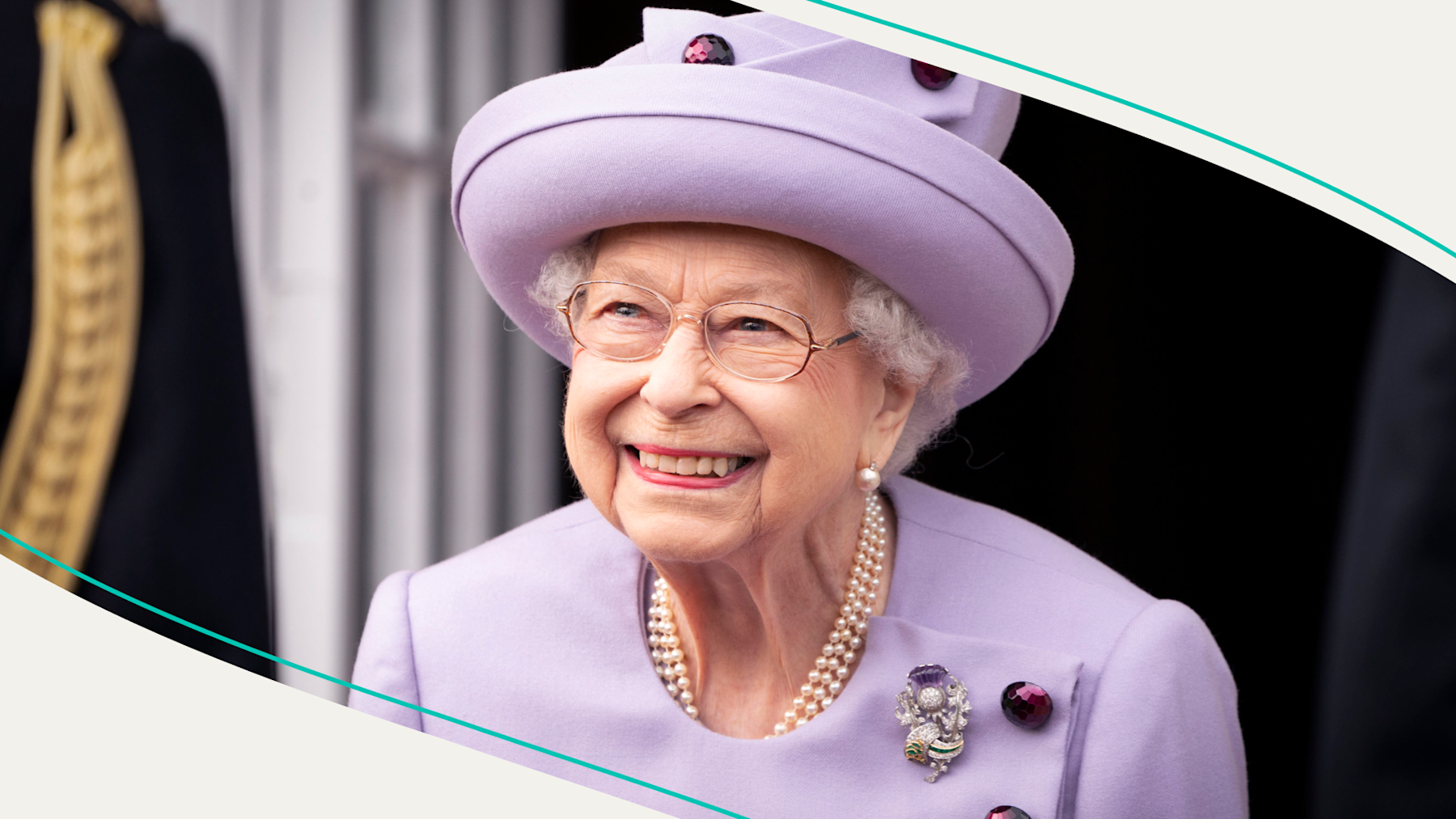| Sreemoy Talukdar brings you the essential cheat sheet on foreign affairs covering India and the world |  | | Queen Elizabeth II has passed away at 96 years of age. She ascended the throne in 1953, a few years after the second world War. Generations of Britons knew no other head of state, so her death has unleashed a tsunami of sadness in Britain, with an underlying fear that the sole thread binding a nation has gone. It has been an eventful week for India as well, with Bangladesh PM Sheikh Hasina's fruitful visit, India-Japan 2+2 talks in Tokyo and a breakthrough disengagement of Indian and Chinese troops from Gogra Hot Springs. | | TOP FIVE NEWS UPDATES | | Longest-serving British monarch Queen Elizabeth II passes away at 96, marking the end of an era | | Britain's Queen Elizabeth II, the longest-serving British monarch, died on Thursday at her Balmoral Scottish estate, aged 96. The Queen, who ascended the throne in 1952, a few years after the second World War, saw through 14 British prime ministers. Her last public duty came only on Tuesday, when she appointed Liz Truss as the British prime minister — the 15th of her reign. In its obituary, The Spectator says, "The Queen has reigned for seventy years. She worked until the very end. Just on Monday, she invited her 15th Prime Minister, Liz Truss, to form a government. In private, she will have dispensed the wisdom and advice that every prime minister came to value. She had, after all, an unparalleled knowledge of Britain's recent political history. Her first prime minister was Winston Churchill, her last was her — and Britain's — third female prime minister. She presided over a period of remarkable social and technological change. She remained throughout a link between the past, present and future." The Economist says, "Elizabeth II leaves a country, and Commonwealth, very different from those she inherited. When she acceded to the throne the vestiges of imperial power lingered; the afterglow of victory in the second world war was still warm. Now Britain is no more than a regional power in the North Atlantic; secession is threatened on all sides; the Commonwealth, unravelling already, looks likely to unravel still further without her. With her death a final thread that tethered Britain to an era of greatness has been cut." The BBC adds: "She became for many the one constant point in a rapidly changing world as British influence declined, society changed beyond recognition and the role of the monarchy itself came into question." The Telegraph has some rare images of the Queen through decades. With Elizabeth II's passing, Prince Charles, the eldest of the Queen's four children, will be formally proclaimed 'King' in a ceremony dating back hundreds of years. At 73, he is the oldest person to accede to the throne in British history, says Bloomberg. In a message, Charles said "We mourn profoundly the passing of a cherished Sovereign and a much-loved Mother. I know her loss will be deeply felt throughout the country, the Realms and the Commonwealth, and by countless people around the world." British prime minister Liz Truss, who was appointed by the Queen on Tuesday, said the monarch was the rock on which modern Britain was built, who had "provided us with the stability and strength that we needed". Prime Minister Narendra Modi, recalling his "memorable" meetings with the Queen in 2015 and 2018, said she personified dignity and decency in public life. "I will never forget her warmth and kindness. During one of the meetings she showed me the handkerchief Mahatma Gandhi gifted her on her wedding. I will always cherish that gesture," Modi said in a tweet. | | Truss beats Sunak in Tory leadership race to become the 56th British PM, faces tough task ahead | | One of the final acts of Queen Elizabeth II, as Britain's head of state, was to appoint Liz Truss as the 15th prime minister during her tenure and UK's 56th PM. Truss, who succeeded Boris Johnson as the Tory leader and Britain's PM after beating party colleague Rishi Sunak in a leadership race, in a break from tradition flew to visit the Queen at the royal family estate Balmoral, due to the 96-year-old monarch's fragile health. 47-year-old Truss, a graduate in philosophy, politics and economics from Oxford, received 81,326 votes in the members' ballot, almost 21,000 more than Sunak who garnered 60,399 votes. In her debut speech, Truss said that she would cut taxes to spur economic growth, bolster the National Health Service and "deal hands on" with the energy crisis, though she offered few details about how she would implement those policies. She is expected to unveil her energy plans on Thursday. British media reported that Truss plans to cap energy bills. The cost to taxpayers of that step could reach £100 billion ($116 billion). In a sign of deep divisions in her party, Truss's winning margin was the narrowest in any Conservative leadership election held this century. Truss also won with the support of less than 50% of members, as almost one in five did not vote. Sunak hinted at standing in a future leadership race. Truss's cabinet, says BBC, was a near-total purge of those who backed Sunak. Bloomberg reports that her government will be the UK's first without a white man holding one of the so-called four great offices of state. Truss named Kwasi Kwarteng as Chancellor of the Exchequer, making him Britain's first Black finance minister. Suella Braverman, who is of Indian heritage, was appointed home secretary, while James Cleverly, who identifies as mixed race, was assigned the role of top diplomat as foreign secretary. | | India, Japan vow closer military cooperation post second 2+2 ministerial meeting | | Shifting focus, India and Japan on Thursday unveiled plans for their first air force exercise as New Delhi backed Tokyo's efforts to reinforce its defence capabilities over the next five years, reflecting the growing security cooperation between the two sides, reports Hindustan Times. The 2+2 framework involved Union defence minister Rajnath Singh holding talks with his Japanese counterpart Yasukazu Hamada, joined by India's external affairs minister S Jaishankar and his Japanese counterpart Yoshimasa Hayashi. The report quotes Singh, as saying in a post-meeting joint media interaction that "there is consensus on both sides that a strong India-Japan relationship is very important for a free, open, rules-based and inclusive Indo-Pacific based upon sovereignty and territorial integrity of nations." Jaishankar pointed to conflicts and climate events aggravating the global economic situation and the need to create resilient and reliable supply chains, and said: "In the face of such challenges, the case for India and Japan to collaborate more closely on foreign policy and security questions has become even stronger." The joint statement stated that "while expressing its resolve to examine all options necessary for national defence, including so called 'counterstrike capabilities,' the Japanese side expressed its determination to fundamentally reinforce Japan's defence capabilities within the next five years and secure substantial increase of Japan's defence budget needed to effect it. Acknowledging Japan's determination to reinforce its defence capabilities, Indian side expressed its support to work towards enhanced security and defence cooperation." Hong Kong-based South China Morning Post newspaper, reporting on the meeting, said, "analysts say that in addition to the challenges posed by Beijing, Japan is, in private, concerned about India's close ties with Moscow, which have not faltered in spite of Russia's invasion of Ukraine. They caution, however, against applying too much diplomatic pressure on New Delhi to switch its allegiances." On Friday, Jaishankar and Singh called on Japan's PM Fumio Kishida and underlined the importance of closer coordination of policies and interests of the two nation, reports The Hindu. | | Ahead of SCO summit, Indian, Chinese troops begin disengagement in Gogra-Hot Springs in Ladakh | | Marking some forward movement in the border standoff that continues since May 2020, India and China on Thursday announced that their armies have begun to disengage from Patrolling Point-15 in the Gogra-Hotsprings area of Eastern Ladakh. A brief joint statement read: "On 8th September 2022, according to the consensus reached in the 16th round of India China Corps Commander Level Meeting, the Indian and Chinese troops in the area of Gogra-Hotsprings (PP-15) have begun to disengage in a coordinated and planned way, which is conducive to the peace and tranquility in the border areas." Sidhant Sibal of Wion points out the link between the disengagement and upcoming Shanghai Cooperation Organization summit in Samarkand. His report adds, "The SCO summit in Uzbekistan's cultural capital will be the first time both Modi and Xi will be under the same roof since the Galwan incident." The Hindu in its report observes that neither side has so far confirmed if the two leaders would hold bilateral talks on the sidelines of the summit, and quotes a "defence official", as saying that the consensus for the latest disengagement "was reached at the Corps Commander level and the ground commanders on both sides have worked out the modalities which are now being implemented. The disengagement began Thursday morning and is underway, the official said adding further details on the modalities are awaited." Economic Times adds that the "disengagement of troops at Patrol Point-15, near Hot Springs, was decided during the last Corps Commander-level meeting in July and a joint announcement on the process was made on Thursday. The last such disengagement took place over a year ago, when troops moved back from forward positions at PP-17A (Gogra)." | | India, Bangladesh deepen cooperation, sign first river pact in 25 years during PM Hasina's India visit | | This eventful week also saw the state visit of Bangladesh prime minister Sheikh Hasina from September 5-8. By all accounts, it was a fruitful visit. Both countries, according to a report in Economic Times, "signed seven MoUs and launched cross-border power and connectivity initiatives. The MoUs are related to water sharing, railways, space, science and judiciary. India is also part of a civilian nuclear power plant being built by Russians in Bangladesh. Describing Bangladesh as India's biggest trade and development partner in the region, Modi said India and Bangladesh have decided to extend cooperation in various sectors, including information technology, space and nuclear energy, which are of interest to the younger generation of both the countries." The list of the outcomes at a glance are available here. For her part, Hasina said "as long as Prime Minister (Narendra) Modi is here, Bangladesh and India will resolve" problems between them, reports Indian Express. It adds: "Speaking after her bilateral meeting with Prime Minister Modi in New Delhi, Hasina said both countries have achieved remarkable progress in a number of areas. I recall that the two countries have resolved many outstanding issues in the spirit of friendship and cooperation, and hope that all outstanding issues including the Teesta water-sharing treaty will be concluded at an early date." The two leaders also agreed to share the waters of the Kushiyara, a common river, in the first such arrangement between the countries since 1996. The agreement will benefit southern parts of Assam and Sylhet region in Bangladesh, says The Diplomat. Both nations will soon commence negotiations on a Bilateral Comprehensive Economic Partnership Agreement (CEPA). "We both believe that by taking lessons from the Covid pandemic and recent global developments, we need to make our economies stronger," Modi said, according to Indian Express. | | | | | | | | | | TOP ANALYSES OF THE WEEK | | Elizabeth II leaves behind a politically confused nation | | Meghnad Desai, a member of the UK's House of Lords, writes on Queen Elizabeth's passing in Indian Express that she "leaves behind a sad country, the majority of whose inhabitants have not known any other monarch. She leaves behind a socially transformed but politically confused nation." | | How Britain has changed since Elizabeth II's crowning | | The Economist gives an account of how Britain has changed since Elizabeth II was crowned in 1953. | | Britain will be a lesser nation without its Queen | | Melanie McDonagh writes in The Spectator that Britain will be a lesser nation without the Queen. The country could stand taller because this very small woman was its monarch. | | India must focus on China's dominance in Asia | | Rather than chasing the will-o'-the-wisp of multipolarity, Indian strategy must focus on how to counter what cannot be prevented: China's dominance in Asia, argues professor Rajesh Rajagopalan in The Print. | | Xi has transformed China's political, social and security landscape | | Xi Jinping has over the past ten years, transformed China's political, social and national security landscape, writes former Indian foreign secretary Vijay Gokhale in Times of India. | | India-Japan ties a net positive asset in Indo-Pacific | | India-Japan ministerial dialogues will be a force multiplier in advancing the late Shinzo Abe's vision of a "Confluence of the Two Seas", and position the India-Japan arc as a net-positive asset in stabilising the Indo-Pacific, argues Titli Basu of Manohar Parrikar Institute in Hindustan Times. | | India-US partnership needs careful nurturing | | Walter Russell Mead writes in Wall Street Journal on Indo-US partnership that while Americans and Indians share strategic and economic interests… we remain divided by important differences in values and perceptions. Unless managed carefully, these differences could derail US-India cooperation at a critical time. | | India-US must build a high-trust ecosystem | | Atul Keshap, former American envoy to India and the president of US-India Business Council, writes in Hindustan Times that both countries are not ready to put our talent and economic weight toward free enterprise and free people, the rules of the 21st century economy will be written by regimes inimical to both. | | Indians, Bangladeshis know the same 1971 events differently | | During the Bangladesh Liberation War, the two countries' soldiers jointly shed blood. Now, the two governments are poised to fulfil the dreams of war veterans like us, write Brig (Retd) RP Singh of Indian Army and Lt Colonel (Retd) Quazi Sajjad Ali Zahir of Bangladesh army in The Print. | | Sustained momentum a good outcome of PM Hasina's India visit | | Subimal Bhattacharjee writes in Indian Express that improved connectivity between India and Bangladesh not only enhances economic prospects but also builds better relations between the people. | | PODCAST WATCHES | | How bad is the situation in Chinese economy? | | Tom Orlik, chief economist at Bloomberg Economics and author of the book 'China: The Bubble that Never Pops in this Bloomberg podcast discusses the confluence of factors plaguing the Chinese economy. | | | | Copyright © 2022.Firstpost - All Rights Reserved. | |






















